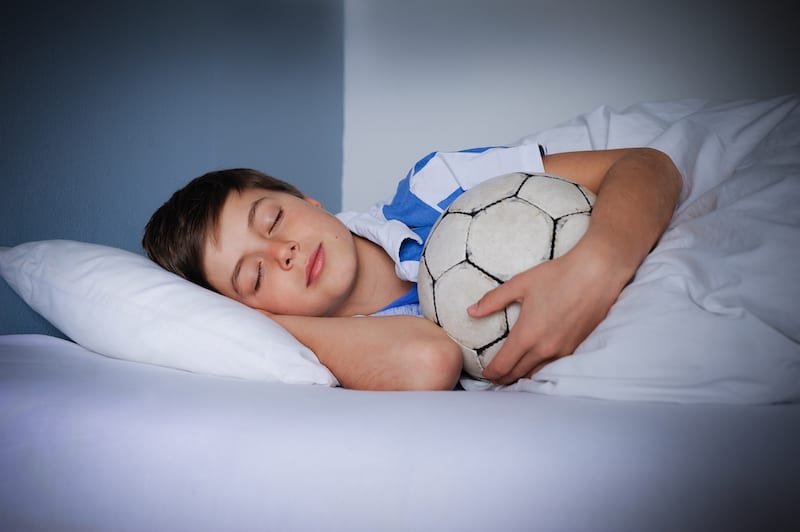The link between athletic performance and quality sleep
Sleep is an essential part of every day health and wellness!
With its significant impact on physical health, emotional regulation, cognitive delivery, and quality of life- the amount and quality of sleep we gets can impact our performance.
Sleep assists humans with rest and recovery, and it also helps in terms of reducing illness and injury- all of which are essential for someone in the athletic field.
Athletes face many obstacles when it comes to getting enough sleep. Daily activities such as training, travelling, education, stress and competitions can all impact quality of res, ultimately resulting in poor performance and an unbalanced lifestyle.
Why is sleep so important for an athlete?
Although crucial for everyone, athletes in particular rely heavily on sleep for their work and life.
Many athletes also opt for daily supplements to keep their system working properly, many of which help with winding down at night.
Getting enough hours will ensure an athlete is performing their best whilst also reducing the chance of body fatigue and injury.
This ensures they don’t need time out from their sport.
Here are just a few reasons as to why sleep is so important in an athlete’s routine.
Rest and Repair
Sleep is the time in which the heart, body cells and tissues can rest and repair. From potentially suffering physical exertion, the changes in your heart rate throughout the night can promote cardiovascular health.
This rest and repair period also ensures all your joints and muscles have time to relax. This reduces any chances of strain, fatigue and weakness, and athletes especially need this time to recharge.
Preventing Illness
Whether you’re recovering from or preventing future illnesses- sleep and rest come hand in hand. While we sleep, the body produces cytokines.
These are the hormones that help the immune system fight off any infections and disease.
Getting ill isn’t ideal for anyone, but for an athlete, this can result in time off and the potential to miss competitions and events.
Improved Performance
One of the main benefits of a good sleep schedule is the performance output.
Getting the appropriate length and quality of sleep can have huge benefits for an athlete’s performance.
Sleep benefits the mind and body, and it is also reflected through movements, reaction time, decision making and strength during the day.
When it comes to training or competitions, athletes need to be on top form, and there’s no doubt that a good sleep schedule can help with this.
Mental State
Many athletes prioritise their physical health, ignoring their mental state. Even though their lifestyle in general can be good for the mind, this can also come with many stresses and anxiety due to high pressure situations.
Sleep quality is heavily linked with mood during the day, and can work in preventing irritability, depression and anxiety. Losing hours or quality of sleep can also affect your mind in ways that are physical.
Mental wellbeing might struggle in a number of ways if you don’t get enough sleep over a prolonged period of time, such as memory loss, cognitive processing, reaction times, weight gain, poor balance and impaired judgement.
How does sleep improve athletic performance?
In terms of the length and quality of a sleep schedule, this can have a big affect on an athlete’s performance.
Sleep deprivation will start to take its toll mentally, and the limited amount rest will begin to show externally too, through physical interaction.
Those who are sleep deprived usually make poor decisions, which needs to be avoided at all costs during sports.
Here are just a few benefits that sleep can have on an athletic performance:
-
Increased speed time
-
Better accuracy
-
Quicker exhaustion
-
Increased reaction time
-
Efficient decision making
-
Low risk of injury
-
Low risk of illness
-
Body and mind strength
It’s recommended that athletes get between 7 and 9 hours of sleep a day. Additional sleep is encouraged before events, competitions and training- although regular, long naps are actually discouraged.
How to create a good sleep schedule
Forming and committing to a schedule in general is difficult for anyone- and it is particularly difficult for an athlete, due to all the travelling and spontaneous events. Creating a standard sleep routine can be hard to maintain.
Unlike non-athletes who might work a 9-5 job, athletes’ days can vary, with early mornings and late nights on the regular. Athletes can also face issues such as jet lag.
Jet lag can take days to overcome, and is a huge issue when it comes to creating a consistent sleep schedule.
There are, however, a number of ways an athlete can improve their schedule or sleep environment.
Create a comfortable sleeping environment
Designing and creating an appropriate space is vital in maintaining a good night’s sleep.
A sleeping space should be dark, cool and quiet, ultimately being a place dedicated to peace and relaxation. This environment should also be a place of personalised comfort.
Investing in high quality bedding, black out blinds and clean decor can all create the right atmosphere.
Avoid alcohol and caffeine
As these beverages can lead to limited or disturbed sleep, it’s always best to avoid them for a good few hours before settling down for the night. There is also a range of food and drink which can affect sleep quality.
These include chocolate, pain killers, ice cream and protein supplements.
Cut down on screen time
Staying away from electronics at least half an hour before bedtime can help the mind to relax and become less animated.
Spend this time to read, meditate or take a bath and teach your mind and body to get into relaxation mode. This time of night is often called ‘down time’ and is ideal in settling the mind.
Take limited naps
As athletes might miss out on sleep during the night, taking day time naps can become a habit. Although having a nap less than an hour long is considered acceptable, they should also not be done after 3pm.
[“source=thesporting”]




